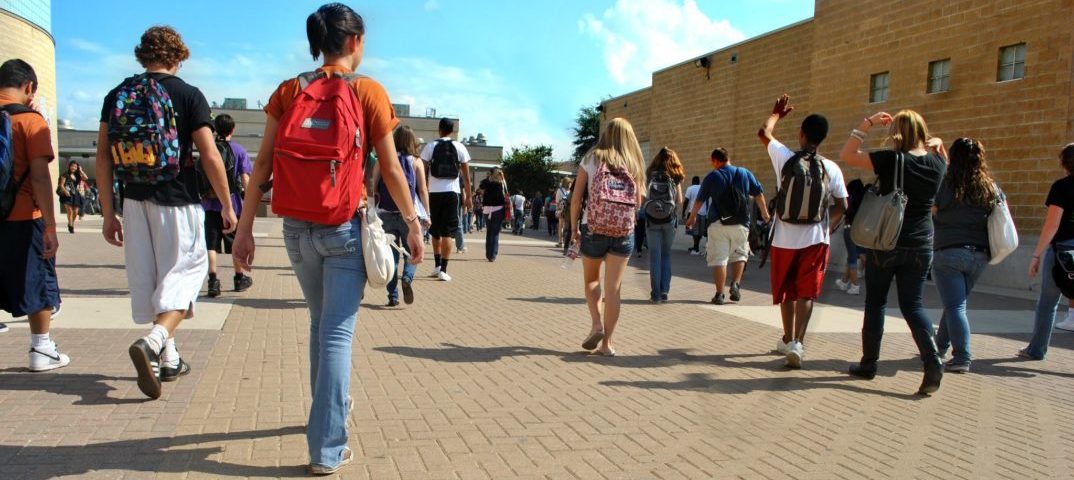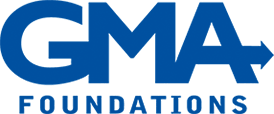
Leaders of seven nonprofits immersed in improving the odds of postsecondary success came for lunchtime conversation at GMA recently. Each takes a deliberate approach, focused squarely on the aspirations of the young people they serve. They are getting results.
Our discussion started with two questions:
- If college is the best path to higher lifetime incomes, then how do we identify and reduce the obstacles to college persistence?
- In today’s changing economy, are there rigorous alternatives to a four-year degree program that pave a similar path to success?
Programs clearing the path to postsecondary success
Philanthropy’s involvement in education has been a constant and is usually focused on some combination of innovation, reform, and equity. Given the massive scale of the challenge, most funders have concentrated their efforts on nonprofit organizations working in partnership with public systems. Our guests, most of them at early stages of work, have chosen to concentrate on early exposure to college, responses to student poverty, and new ways of framing the postsecondary experience.
The Massachusetts Early College Initiative (a public-private venture) is designed to create high quality and deep partnerships between the state’s high schools and colleges to focus on equitable access to higher education, strong academic pathways, robust student supports, and connections to careers. Since its inception in 2017, seventeen early college programs have been formed.
MassInsight is invested on the front-end, working with high school districts across the country to increase student academic success (largely through enrollment in AP courses) and transform schools to accelerate performance. Through a ‘strength on strength’ approach, MassInsight seeks dramatic improvements that close achievement and opportunity gaps.
SCS Noonan Scholars works over a longer term (high school through job placement) with high-achieving underrepresented young people to combat the phenomenon of undermatching, working to ensure that these students from low-income families are placed in competitive colleges and majors, thrive once they are there, and are well networked for successful careers.
Both Food for Free and Single Stop USA @ Bunker Hill Community College address the basic needs of low-income students, removing potentially huge obstacles for young adults trying to complete their education and escape poverty. Food for Free is a multilayered program that brings food to students at their schools. Single Stop staff, typically embedded within a community college, connect students to state and federal financial resources and local community services, help with housing issues and health insurance applications, and help students advocate for themselves.
Duet, an offshoot of the successful Match Charter Public School, has joined forces with Southern New Hampshire University to provide a combination of mentoring and distance learning for students for whom a conventional college experience is not an option. Graduates earn their degree quickly while working full time.
Resilient Coders’ highly competitive program for people of color offers equity in access to the tech economy. An accelerated alternative to college, Resilient Coders teaches computer coding within a relatively short amount of time, preparing participants for careers as software engineers and placing them in well-paying jobs.
Obstacles to college persistence remain
College completion is naturally a hurdle, a measure of one’s success as a student and as a young adult. For some, though, the obstacles are larger, societal, and nearly impossible to surmount. Deft nonprofit programs like those listed are targeting some of these obstacles in improving the odds of postsecondary success.
Inadequate preparation
Some college freshmen arrive without the needed academic preparation, most acute in preparation for STEM courses. As a result, these students get counseled into less competitive majors.
Inequalities in college preparation begin well before high school. In some school districts, preparation would include adding wellness counselors in K-12 for mental health, food, and housing supports.
Absence of mentors or supportive adults
Students without access to information and counseling are at a distinct disadvantage. Mentors or supportive adults would offer encouragement and wisdom, and help them navigate the college system and make good decisions.
Lack of time and money, and other stressors
To succeed in school, students may first need food, housing, transportation, childcare, and time – lots of time. These barriers don’t just pop up at age 18! The mental stress associated with poverty can be formidable, particularly when compounded by other stressors like the uncertainty of immigration status for DACA students or the fear of taking out college loans and potential default.
Post-college planning and support network
Lack of supports for students—in finding a job post-college, in building a network of supporters and potential employers—makes it harder to capitalize on a degree. College graduates all too often are working low-wage jobs. Investments in conversion from degree to career are needed.
Public and employer perception
The public narrative about the importance of college is an obstacle. Our culture weights the “baggage” around not completing college—when actually that is the norm. Employers particularly should not see college as only way to succeed.
Lack of clear vocational and different pathways presents other challenges to high school graduates. A movement to credential-ize learning would give employers confidence in hiring candidates without college degrees.
——–
Discuss your own thinking on the obstacles to postsecondary success with Phil Hall, GMA’s Director of Grantmaking. Reach him via email phall@gmafoundations.com
For some context on post-secondary success in Boston, read:
Boston Globe’s Valedictorians Project “one quarter of Boston’s valedictorians from 2005 to 2007 did not finish college within six years. Today, 40 percent still earn less than $50,000 a year.”
The Boston Private Industry Council and Success Boston’s College Enrollment and Completion Experiences of BPS Class of 2011 Graduates shows college completion rates vary markedly by the type of high school and college attended, and remain lower than the national average.
